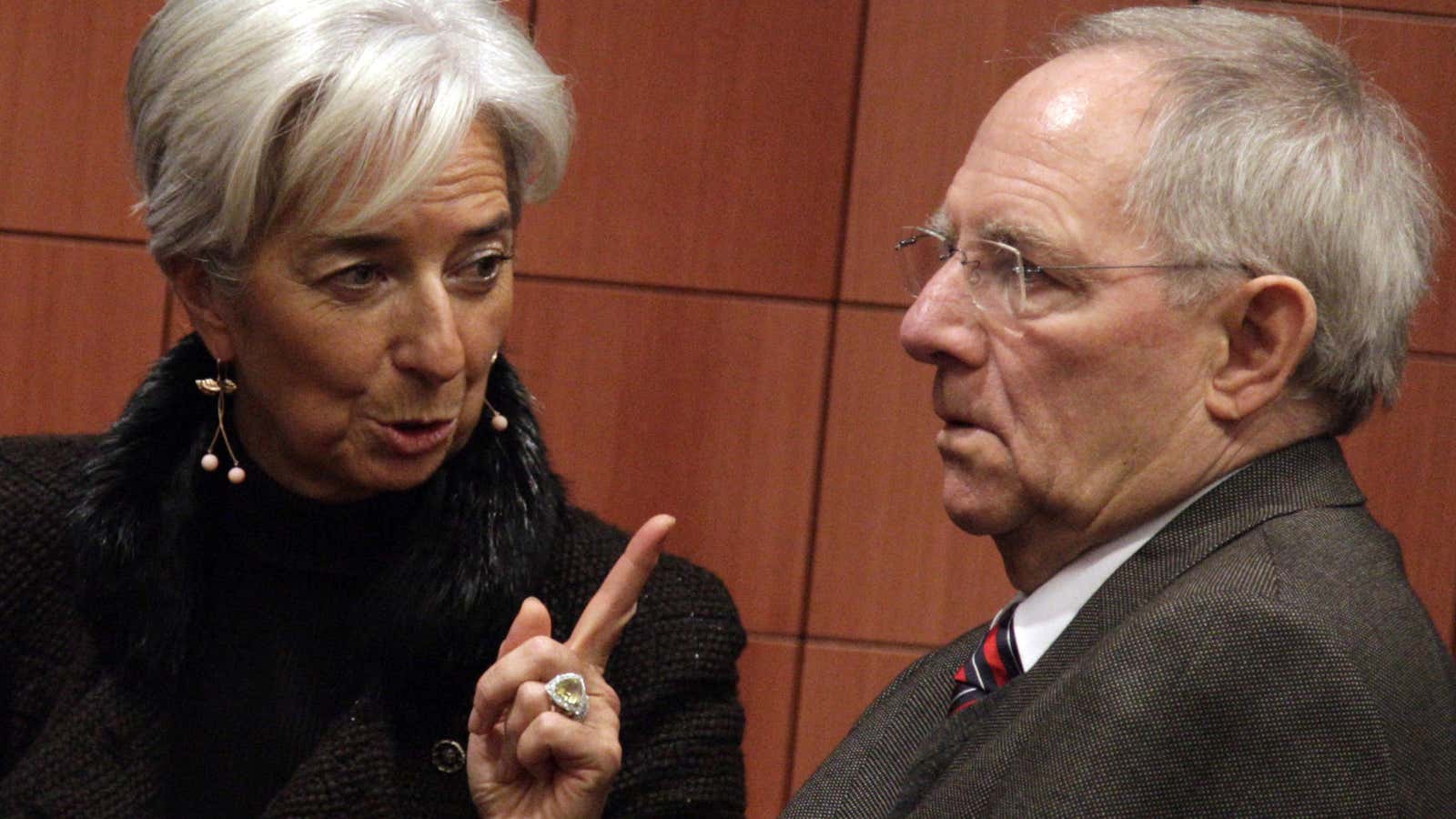The International Monetary Fund (IMF) has got some news, and it’s not going to please Germany and the other countries of the European north. In its latest report on the economic state of Greece, the IMF virtually admits that the current, hard-won plan to rescue the country—by lending it €130 billion ($173 billion) to help it bring down its debt burden to a target of 124% of GDP by 2020—simply isn’t good enough. Further, it projects a €5.5–9.5 billion funding gap, all of which Greece will have to face in 2015 and 2016. The fund writes:
Greece’s recovery is now projected to start later, and the path for medium-term potential output is expected to be lower… Given the revised policy framework and deeper recession, and assuming no actions to reduce debt, Greece’s debt would be unsustainable. Greece’s debt would be considerably higher than in the original EFF-supported program, peaking at close to 200 percent of GDP and only slowly declining to 150–160 percent of GDP in 2020.
This doesn’t merely mean Greece will recover more slowly. It also means that the rest of Europe will have to pay—i.e., lose—the difference between the overly rosy original predictions and the numbers that the IMF (which isn’t even the most cynical forecaster) is now putting forward. If the IMF’s predictions are accurate, then Greece will also be at risk of defaulting again in 2015 or 2016, as it will lack adequate funds to pay its bills. The report continues:
Time will tell what the full commitment will require, but staff’s assessment at this point is that some combination of haircuts on outstanding GLF loans [essentially, loans from the European Central Bank, European countries, and the IMF], close to zero interest rates on GLF loans and lower rates on EFSF loans [loans from the bailout fund], or long-term transfers [another bailout] will be necessary.
Admittedly, these are no longer big numbers. Europe has, time and again, succumbed to market pressure and paid up; is €10 billion more really the end of the world? If past forecasts are any indication, the IMF’s estimate of the shortfall will further grow with time, but that’s the price of keeping Greece in the euro, to be set against the still-bigger price of a Grexit.
It’s important to note, however, that Greece’s primary creditors right now aren’t private stakeholders, who can often be forced to take “haircuts” on money they’ve lent. Most of what Greece owes, it owes to the troika (the ECB, the IMF and EU countries). The €130 billion bailout is already Greece’s second, so unless there’s political support for a third, the troika’s members would all have to forgive some of this debt—or at least all the interest they’re currently charging Greece for the bailout. That’s a drastic prospect for them. Forgiving debt isn’t something the IMF habitually does; European populations would hate their governments doing it; and the ECB is prohibited by law from “monetizing debt.” So far, they’ve budged (only slightly) in offering lower interest payments on loans to Greece and delays in debt repayments; it seems likely that the current shortfall would require much higher losses.
So big battles are still ahead in Europe. Regardless of countries’ commitments to keeping the euro zone whole, they’ll still have to consent to make new, even more unsavory compromises to do so.
